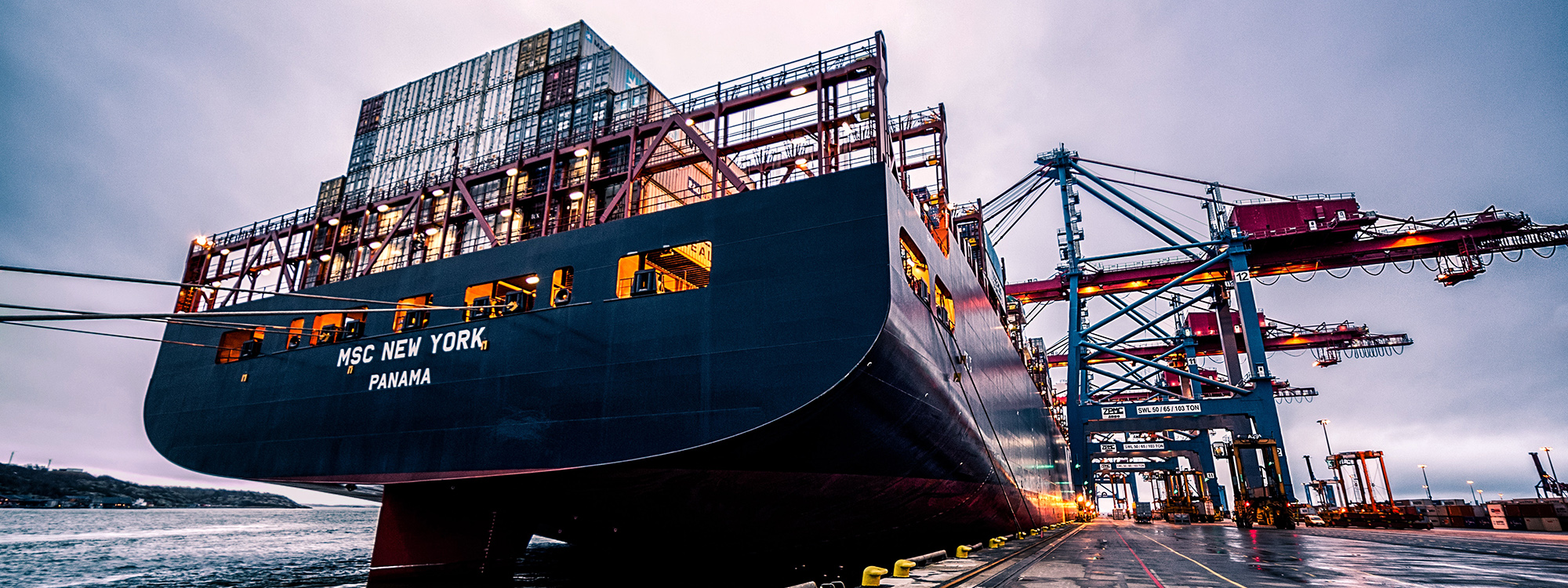
One of the first steps towards dispute resolution involves finding the right arbitrator(s) or mediator for the dispute. Many clients defer to their lawyers, hoping they “know someone good.” Some are more “hands on”, and undertake the search themselves, oftentimes relying on their own research and word of mouth.
When I was in-house, I often did the same, asking litigation counsel to identify candidates, which we would then discuss and decide upon. In the case of one mediation, we obtained a list of mediators from a prominent ADR organization, and then looked at their CVs hoping to find someone with significant ADR experience, who was familiar with our industry. We also wanted someone without any overt signs of bias against big business (such as former plaintiffs counsel or personal injury lawyers). And of course, someone our adversary would find acceptable and not outright dismiss. A tall order that was, admittedly, quite hit or miss.
As business goes international so too do comercial disputes. In this context, the selection of neutrals is even more challenging. I believe that the international nature of a comercial dispute, calls for a number of special considerations, when selecting the proper neutral.
Does the proposed neutral have international training and experience?
Firstly, and based on my experience, international disputes require internationally trained and experienced neutrals. Because international disputes very often involve parties from very distinct legal systems, those who sit as arbitrators or mediators must have a deep understanding of these very distinct systems.
I have debated this point with ADR practitioners, who counter that too much is made of the civil law/ common law divide. In my experience, different legal systems often have very different concepts on issues that can be determinative in certain cases. Examples abound, (ie doctrines such as force majeure, or the nature of property rights or the discovery of evidence).
Where a mediator, for example, is unfamiliar with doctrinal legal differences, opportunities to challenge a party’s embedded position on an issue might be lost. Where an arbitrator is unfamiliar with procedural differences, rulings on evidentiary issues, could, in some cases, give rise to allegations of unfair bias.
Does the proposed neutral have International business experience?
Often, when we seek international neutrals. we find countless publications and seminars on the fine points of law pertaining to international arbitration and mediation. The international ADR community is particularly active on this front. In this way, we can get a good idea of the quality of research and writing of many practitioners.
In my opinión, however those chosen to sit as as arbitrators or act as mediators must also have a good understanding of how international business actually operates. While it is very important to understand different legal procedures or even cultural mores, it is just as important to understand how business actually get things done.
Parties often select neutrals with considerable litigation experience, in the hopes of selecting someone as close to a “real” judge as possible. Indeed, many parties prefer selecting retired judges as mediators or arbitrators. I confess to having done this myself. The organizational and analytical skills of seasoned litigators and judges are usually quite impressive. While this is often a sound criteria for selection, sometimes it is not.
I believe that international business cases require neutrals with a particular international business skill set. Neutrals without business experience are at greater risk of getting bogged down with operational issues that have very little to do with the heart of the dispute. Or for that matter overlooking practical issues that may be central to a fair resolution of the case. I recall a case involving damaged cargo, where the neutral (a former judge who often forgot he was acting as a mediator rather than an adjudicator) all but ignored the applicable incoterm establishing where risk of loss passed. While this was understandable for someone with no experience with the international sale of goods, it suggested to me that this might not be the best neutral for the case.
How familiar is the neutral with the hidden risks of International business?
International neutrals must also have an understanding of the hidden risks of international business. Truly understanding the international operating environment involves familiarity with the not so obvious. For example, when considering an international contract dispute, one must not only consider the applicable law of the contract but also the possible interplay with the extraterritorial application of laws and regulations (such as international trade and financial sanction regimes).
This blindsight has led to instances of unenforceable awards being rendered, due to the application of sanctions. Indeed neutrals unfamiliar with anti corruption or sanctions regimes are at greater risk of having the process being hijacked or manipulated by parties seeking to illegally circumvent the application of such norms.
Is the proposed neutral familiar with international investment law?
Experienced international neutrals must also be familiar with international investment treaties when disputes involve foreign State action. Some State regulatory measures can amount to wrongful regulatory takings. Indeed States may breach contracts or concessions or deny fair and equitable treatment or frustrate investors legitimate expectations under applicable regional or bilateral investment treaties.
Many domestic lawyers are unfamiliar with this area of law, as it is rarely forms part of most law school curricula. It is also fair to say, that familiarity with these international legal instruments are usually not the day to day of most litigators. Selecting a neutral with 30 years of litigation experience is no guarantee that they know the first thing about treaty arbitration.
Is the proposed arbitrator or mediator demonstrably independent and neutral?
International neutrals must be truly independent and unbiased. This can be challenging, at times, as many such professionals hail from major law firms and are more likely to find themselves in potential conflicts of interest due to their firm’s very broad client network.
Is the proposed neutral familiar with the differences in ethical standards when working internationally?
Indeed, ethical standards can be a minefield for international neutrals because standards are for the most part domestically focused, with very inconsistent levels of enforcement around the world. What might be considered good practice in one jurisdiction, might very well be an ethical violation in another. Unfamiliarity with such differences can lead to genuine headaches.
By Peter Nahmias






where to get generic cialis without prescription
where to get generic cialis without prescription
and paxil are called ssris because they
and paxil are called ssris because they
flagyl aftertaste
flagyl aftertaste
gabapentin sudeck
gabapentin sudeck
fluoxetine allergy
fluoxetine allergy
how long does it take for lexapro to work
how long does it take for lexapro to work
keflex and alcohol interaction
keflex and alcohol interaction
duloxetine irritability
duloxetine irritability
viagra for sale online canada
viagra for sale online canada
alcohol and cymbalta blackout
alcohol and cymbalta blackout
cephalexin 500 used for
cephalexin 500 used for
para que son las pastillas escitalopram
para que son las pastillas escitalopram
azithromycin monohydrate
azithromycin monohydrate
cephalexin 500mg for tooth infection
cephalexin 500mg for tooth infection
ciprofloxacin eye drops for stye
ciprofloxacin eye drops for stye
smz/tmp ds tab 800-160 same as bactrim
smz/tmp ds tab 800-160 same as bactrim
bactrim f
bactrim f
neurontin uses for pain
neurontin uses for pain
can you take amoxicillin for a uti
can you take amoxicillin for a uti
depakote hair loss
depakote hair loss
is escitaloprám the same as citalopram
is escitaloprám the same as citalopram
cozaar medicine
cozaar medicine
what does ezetimibe do
what does ezetimibe do
augmentin for sinus infection
augmentin for sinus infection
how does effexor work
how does effexor work
ddavp for diabetes
ddavp for diabetes
diltiazem hydrochloride er
diltiazem hydrochloride er
contrave experience reddit
contrave experience reddit
can you take flexeril with ibuprofen
can you take flexeril with ibuprofen
diclofenac sodium 75 mg
diclofenac sodium 75 mg
interaction between flomax and cialis
interaction between flomax and cialis
febuxostat vs allopurinol
febuxostat vs allopurinol
how long does amitriptyline take to work for nerve pain
how long does amitriptyline take to work for nerve pain
aripiprazole 5mg tablets
aripiprazole 5mg tablets
aspirin molecular weight
aspirin molecular weight
buspar dosing
buspar dosing
bupropion-naltrexone (contrave)
bupropion-naltrexone (contrave)
celecoxib 200 mg side effects
celecoxib 200 mg side effects
do i take ashwagandha in the morning or night
do i take ashwagandha in the morning or night
baclofen 10 mg street price
baclofen 10 mg street price
actos comissivos
actos comissivos
which is stronger flexeril or robaxin
which is stronger flexeril or robaxin
is abilify an ssri
is abilify an ssri
protonix and zantac
protonix and zantac
remeron dosage 7.5 mg
remeron dosage 7.5 mg
semaglutide long island
semaglutide long island
calibration curve for repaglinide
calibration curve for repaglinide
acarbose herstellung
acarbose herstellung
synthroid brasil
synthroid brasil
potassium and spironolactone
potassium and spironolactone
is 37.5 mg of venlafaxine a high dose
is 37.5 mg of venlafaxine a high dose
does tizanidine help with opiate withdrawal
does tizanidine help with opiate withdrawal
stromectol 3mg tablets
stromectol 3mg tablets
voltaren gel and warfarin interactions
voltaren gel and warfarin interactions
tamsulosin ejakulationsstörung
tamsulosin ejakulationsstörung
sitagliptin overdose
sitagliptin overdose
cialis online pills
cialis online pills
buy tadalafil online india
buy tadalafil online india
order sildenafil online
order sildenafil online
sildenafil vs tadalafil vs vardenafil
sildenafil vs tadalafil vs vardenafil
buy levitra online cheap
buy levitra online cheap
viagra levitra order
viagra levitra order
clarithromycin online pharmacy
clarithromycin online pharmacy
bangkok pharmacy kamagra
bangkok pharmacy kamagra
vardenafil msds
vardenafil msds
vardenafil dosage maximum
vardenafil dosage maximum
how to buy stromectol
how to buy stromectol
ivermectin ireland
ivermectin ireland
where to buy sildenafil 100mg
where to buy sildenafil 100mg
stromectol tablet 3 mg
stromectol tablet 3 mg
liquid tadalafil forum
liquid tadalafil forum
buy viagra super active
buy viagra super active
tadalafil order online
tadalafil order online
ivermectin 6mg tablet for lice
ivermectin 6mg tablet for lice
ivermectin over the counter
ivermectin over the counter
topical ivermectin cost
topical ivermectin cost
Some thoughts on Selecting Neutrals for International Commercial Disputes – Nahmias Legal
https://kikoteayiti.com/🚀📚-devoilement-de-nouveaux-horizons-le-seminaire-de-decodage-istaff-ajebbs-📚🚀/
Some thoughts on Selecting Neutrals for International Commercial Disputes – Nahmias Legal
http://клёнмедиа.рф/2017/02/06/привет-мир/
Some thoughts on Selecting Neutrals for International Commercial Disputes – Nahmias Legal
https://dersonnehinterher.com/sal
Some thoughts on Selecting Neutrals for International Commercial Disputes – Nahmias Legal
https://deyvistv.com/hola-otra-vez-blog/
short course of prednisone dosage
short course of prednisone dosage
normal dosage of gabapentin for nerve pain
normal dosage of gabapentin for nerve pain
augmentin for uti
augmentin for uti
is keflex a penicillin
is keflex a penicillin
does amoxicillin make you sleepy
does amoxicillin make you sleepy
discontinuing lisinopril side effects
discontinuing lisinopril side effects
pregabalin and gabapentin
pregabalin and gabapentin
can i drink alcohol while taking valacyclovir
can i drink alcohol while taking valacyclovir
can i use boric acid and metronidazole together
can i use boric acid and metronidazole together
tamoxifen endometrial cancer
tamoxifen endometrial cancer
side effect of doxycycline
side effect of doxycycline
glucophage achat
glucophage achat
cipro in dextrose 5% in plastic container
cipro in dextrose 5% in plastic container
can you take trazodone while pregnant
can you take trazodone while pregnant
natural alternative provigil
natural alternative provigil
what is cephalexin for
what is cephalexin for
Some thoughts on Selecting Neutrals for International Commercial Disputes – Nahmias Legal
https://yabaga.com/oppo-working-find-n-fold-and-find/
Some thoughts on Selecting Neutrals for International Commercial Disputes – Nahmias Legal
https://bkaco.app/chu-tich-quoc-hoi-den-thu-do-tehran-bat-dau-tham-chinh-thuc-iran/
Some thoughts on Selecting Neutrals for International Commercial Disputes – Nahmias Legal
https://www.hossbook.com/index.php/2019/08/28/kid-safe-paint-mare/
Some thoughts on Selecting Neutrals for International Commercial Disputes – Nahmias Legal
http://mcr.noseworkcz.net/2015/07/21/hall-of-flowers/
Some thoughts on Selecting Neutrals for International Commercial Disputes – Nahmias Legal
https://loodgietersinfo.com/drenthe/meppel/installatiebedrijf-meppel-bv-de-haardenspecialist/
Some thoughts on Selecting Neutrals for International Commercial Disputes – Nahmias Legal
https://www.fromthisoneplace.com/can-combining-creatine-and-multivitamins-be-harmful/
Some thoughts on Selecting Neutrals for International Commercial Disputes – Nahmias Legal
https://www.haynessmile.com/category/cosmetic-dentistry/
Some thoughts on Selecting Neutrals for International Commercial Disputes – Nahmias Legal
https://elofit.be/geen-onderdeel-van-een-categorie/hello-world/
Some thoughts on Selecting Neutrals for International Commercial Disputes – Nahmias Legal
https://studiocoudre.com/news/クリアランスセール実施中!(在庫なくなり次第/
Some thoughts on Selecting Neutrals for International Commercial Disputes – Nahmias Legal
https://www.derbesteaugenblick.de/weihnachtsshooting/
Some thoughts on Selecting Neutrals for International Commercial Disputes – Nahmias Legal
https://unamicp.com/noticias/horario-de-partidos-futbol-7-y-8-de-febrero/
Some thoughts on Selecting Neutrals for International Commercial Disputes – Nahmias Legal
https://labellingthai.com/10-reason-why-roofing-are-factmake-easier-8/
Some thoughts on Selecting Neutrals for International Commercial Disputes – Nahmias Legal
http://ftftftf.com/zzz_NotInUse/zzzz_bbslb/light.cgi/www.frameusers.com/aana.com.au/themomentum.co/page/light.cgi?page=0
Some thoughts on Selecting Neutrals for International Commercial Disputes – Nahmias Legal
https://israeli-visa.com/b-2-visitors-visa/
Some thoughts on Selecting Neutrals for International Commercial Disputes – Nahmias Legal
https://www.primoc.com/product/gym-carpet/
Some thoughts on Selecting Neutrals for International Commercial Disputes – Nahmias Legal
https://www.basariyanginguvenlik.com/yangin-merdiveni-imalati/
Some thoughts on Selecting Neutrals for International Commercial Disputes – Nahmias Legal
https://juniorbill.com/processo-arte-para-silkscreen/
Some thoughts on Selecting Neutrals for International Commercial Disputes – Nahmias Legal
https://avenzamaps.jp/?attachment_id=59
Some thoughts on Selecting Neutrals for International Commercial Disputes – Nahmias Legal
https://delsolcafe.ro/hello-world/
Some thoughts on Selecting Neutrals for International Commercial Disputes – Nahmias Legal
https://www.daisurdu.com/2022/02/02/سپریم-کورٹ-کے-نئے-چیف-جسٹس-عمرعطاء-بندی/
Some thoughts on Selecting Neutrals for International Commercial Disputes – Nahmias Legal
http://krestanekromeriz.cz/category/aktuality/
Some thoughts on Selecting Neutrals for International Commercial Disputes – Nahmias Legal
https://www.centrodemisiones.es/quienes-somos/flag_of_sweden/
Some thoughts on Selecting Neutrals for International Commercial Disputes – Nahmias Legal
http://rakel.is/skorkort-ghg/
Some thoughts on Selecting Neutrals for International Commercial Disputes – Nahmias Legal
https://www.kang-center.de/taekwondo-artikel-womenshealth-de/
Some thoughts on Selecting Neutrals for International Commercial Disputes – Nahmias Legal
https://altfel.md/2021/10/27/conversatie-translator/
Some thoughts on Selecting Neutrals for International Commercial Disputes – Nahmias Legal
http://oso-znanie.boginya-yar.ru/возможности-закона-возможностей/
Some thoughts on Selecting Neutrals for International Commercial Disputes – Nahmias Legal
https://su-atelier.de/diese-seite-befindet-sich-im-aufbau/
Some thoughts on Selecting Neutrals for International Commercial Disputes – Nahmias Legal
https://anuncioseroticos.co/ad_listing/paula-linda-rubia-delgada-viene-a-complacerte-al-maximo-bien-caliente-servicio-a-domicilio-hoteles-y-moteles/
Some thoughts on Selecting Neutrals for International Commercial Disputes – Nahmias Legal
https://carltonwoodsinvitational.com/joseph-deraney-and-justin-kaplan-co-lead-with-67s-jeff-new-leads-seniors/
Some thoughts on Selecting Neutrals for International Commercial Disputes – Nahmias Legal
https://www.buskerspub.com/1xbet-india-review-march-2023-claim-bonus-up-to-10000/
Some thoughts on Selecting Neutrals for International Commercial Disputes – Nahmias Legal
https://www.suarabangka.com/aktivitas-ponpes-terganggu-drone-misterius-sering-terbang-rendah-di-areal-pesantren-puding-besar/
Some thoughts on Selecting Neutrals for International Commercial Disputes – Nahmias Legal
https://www.lamot-mechelen.be/uncategorized/hello-world/
Some thoughts on Selecting Neutrals for International Commercial Disputes – Nahmias Legal
https://blendconcepts.com/2016/03/understanding-fabric-sheen/
Some thoughts on Selecting Neutrals for International Commercial Disputes – Nahmias Legal
http://turn2u.dk/hello-world/
Konya SEO Hizmeti
Konya SEO Uzmanı cok iyi harika biri super bayildimmmmmmmmmm bu ne boyle yaaaa
Some thoughts on Selecting Neutrals for International Commercial Disputes – Nahmias Legal
https://ottawalimousinerental.com/private-limo-service-in-ottawa/
Konya Evden Eve Nakliyat
Konya Evden Eve Nakliyat, anahtar kelimeleri değil, Mevlana Müzesi’nin anahtarlarını arıyor.
Konya Evden Eve Taşımacılık
Konya Evden Eve Nakliyat, içerik stratejisini pideler üzerine yazıyor.
Some thoughts on Selecting Neutrals for International Commercial Disputes – Nahmias Legal
https://bizworkdigital.com/7-productivity-tips-to-avoid-burnout-when-working/
track phone location
As an Android phone finder, it works great. Love how you can find a phone location instantly without complicated setup.
buy followers instagram
Pretty good service if you need to buy followers Instagram marketing requires.
Web Tasarım Fiyatları
Internet sitesi kurma karari aldigimda iyi ki burayi secmisim. Harika bir deneyimdi.
cristiano ronaldo skills
cristiano ronaldo skills hello i am a football player
Some thoughts on Selecting Neutrals for International Commercial Disputes – Nahmias Legal
https://abbey.fi/moikka-maailma/
Some thoughts on Selecting Neutrals for International Commercial Disputes – Nahmias Legal
https://elvinbale.com.tr/index.php/component/k2/item/180/180.html?start=317880
Some thoughts on Selecting Neutrals for International Commercial Disputes – Nahmias Legal
https://babymonitorsource.com/how-to-extend-baby-monitor-range/
Some thoughts on Selecting Neutrals for International Commercial Disputes – Nahmias Legal
https://dakenoudperfume.com/oud-perfume-hand-made-crafted-from-seven-sister-state/
Some thoughts on Selecting Neutrals for International Commercial Disputes – Nahmias Legal
https://beyondphotographysa.com/beach-wedding-photography-cape-town
Some thoughts on Selecting Neutrals for International Commercial Disputes – Nahmias Legal
https://laboratoireconscientiel.com/blog/2022/12/29/non-classe/ouverture-officielle-du-laboratoire-et-mode-demploi/
Some thoughts on Selecting Neutrals for International Commercial Disputes – Nahmias Legal
https://torreondefuensanta.com/quote-posr/
Some thoughts on Selecting Neutrals for International Commercial Disputes – Nahmias Legal
https://hajimete-tousi.com/archives/84/
Some thoughts on Selecting Neutrals for International Commercial Disputes – Nahmias Legal
https://www.edmontonjunkcarremoval.com/scrap-my-car/
Some thoughts on Selecting Neutrals for International Commercial Disputes – Nahmias Legal
https://www.cristinapaetzold.com/this-post-looks-beautiful-even-with-long-interesting-title/
Some thoughts on Selecting Neutrals for International Commercial Disputes – Nahmias Legal
https://fisioterapiaalc.es/index.php/ca/component/k2/item/3-donec-feugiat-libero-ut-lectus-consectetur-ac
Some thoughts on Selecting Neutrals for International Commercial Disputes – Nahmias Legal
https://cloudlab.tw/利用box2dwck賦予flash物理特性-浮力與波浪/
Some thoughts on Selecting Neutrals for International Commercial Disputes – Nahmias Legal
https://tcpartners.eu/friday-mixtape-molly-fairhursts-mix-for-illustrators-having-a-fight/
vardenafil hcl dosage
vardenafil hcl dosage
viagra women
viagra women
specialty pharmacy
specialty pharmacy
levitra cheap drugs
levitra cheap drugs
can you cut tadalafil in half
can you cut tadalafil in half
sildenafil 20 mg how many can i take
sildenafil 20 mg how many can i take
side effects sildenafil
side effects sildenafil
how many mg of sildenafil should i take
how many mg of sildenafil should i take
tadalafil or sildenafil which is better
tadalafil or sildenafil which is better
pros and cons of sildenafil
pros and cons of sildenafil
levitra printable discount coupons
levitra printable discount coupons
cheap levitra com
cheap levitra com
tadalafil oxytocin pt-141 reviews
tadalafil oxytocin pt-141 reviews
is cialis covered by insurance
is cialis covered by insurance
best online pharmacy buy accutane
best online pharmacy buy accutane
levitra 30 day free trial
levitra 30 day free trial
sildenafil and tadalafil combination
sildenafil and tadalafil combination
buying generic levitra online
buying generic levitra online
navarro discount pharmacy store locator
navarro discount pharmacy store locator
is sildenafil a controlled substance
is sildenafil a controlled substance
Female Cialis Soft
Female Cialis Soft
online sildenafil prescription
online sildenafil prescription
no prescription xanax online pharmacy
no prescription xanax online pharmacy
fioricet online pharmacy
fioricet online pharmacy
cialis effects
cialis effects
difference between viagra and sildenafil
difference between viagra and sildenafil
levitra vardenafil citrate
levitra vardenafil citrate
singapore pharmacy online store
singapore pharmacy online store
does tadalafil make you last longer
does tadalafil make you last longer
Prothiaden
Prothiaden
zolpidem online pharmacy no prescription
zolpidem online pharmacy no prescription
new at your publix pharmacy free lisinopril
new at your publix pharmacy free lisinopril
Some thoughts on Selecting Neutrals for International Commercial Disputes – Nahmias Legal
https://www.ofive.tv/2018/05/11/keys-n-krates-my-night-ft-070-shake/
tadalafil time to peak effect
tadalafil time to peak effect
singulair online pharmacy
singulair online pharmacy
coupon for tadalafil
coupon for tadalafil
buy tadalafil online
buy tadalafil online
tadalafil effects on kidneys
tadalafil effects on kidneys
does vardenafil lose potency over time
does vardenafil lose potency over time
Some thoughts on Selecting Neutrals for International Commercial Disputes – Nahmias Legal
http://translatorindonesia.com/2017/01/18/tips-menggunakan-jasa-penerjemah-tersumpah/
etodolac class
etodolac class
drug interactions aspirin and ibuprofen
drug interactions aspirin and ibuprofen
how to alternate children’s motrin and tylenol
how to alternate children’s motrin and tylenol
carbamazepine myasthenia gravis
carbamazepine myasthenia gravis
tegretol vs depakote
tegretol vs depakote
indikasi celebrex 200mg
indikasi celebrex 200mg
celecoxib monograph usp
celecoxib monograph usp
neurontin used for
neurontin used for
sulfasalazine interaction other drugs
sulfasalazine interaction other drugs
ketamine-baclofen-cyclobenzaprine-ketoprofen-gabapentin-lidocaine cream
ketamine-baclofen-cyclobenzaprine-ketoprofen-gabapentin-lidocaine cream
azithromycin and imitrex
azithromycin and imitrex
what are the dangers of taking diclofenac?
what are the dangers of taking diclofenac?
where can i buy pyridostigmine pills
where can i buy pyridostigmine pills
indomethacin 25 mg drug interactions
indomethacin 25 mg drug interactions
mestinon cough
mestinon cough
cilostazol in secondary prevention of stroke impact of the cilostazol stroke prevention study
cilostazol in secondary prevention of stroke impact of the cilostazol stroke prevention study
amitriptyline brand
amitriptyline brand
can you take mebeverine and buscopan together
can you take mebeverine and buscopan together
withdrawal effects of elavil
withdrawal effects of elavil
rizatriptan manufacturer in india
rizatriptan manufacturer in india
ismo vs imdur
ismo vs imdur
baclofen or tizanidine
baclofen or tizanidine
is mobic prescription drug
is mobic prescription drug
azathioprine eczema forum
azathioprine eczema forum
piroxicam efecte adverse
piroxicam efecte adverse
sumatriptan 100 teilbar
sumatriptan 100 teilbar
0.63 genérico imuran azathioprine 50 mg
0.63 genérico imuran azathioprine 50 mg
maxalt dosage by weight
maxalt dosage by weight
lioresal 5 anwendung
lioresal 5 anwendung
artane meble kuchenne
artane meble kuchenne
can you take tizanidine with percocet
can you take tizanidine with percocet
periactin and pregnancy
periactin and pregnancy
what cyproheptadine used for
what cyproheptadine used for
zanaflex birth defects
zanaflex birth defects
can i purchase generic ketorolac online
can i purchase generic ketorolac online
cheap toradol without prescription
cheap toradol without prescription
Some thoughts on Selecting Neutrals for International Commercial Disputes – Nahmias Legal
https://learningquran.net/seeking-refuge-from-4-things/
Some thoughts on Selecting Neutrals for International Commercial Disputes – Nahmias Legal
https://iforly.com/what-are-passing-grades-in-college/
anatoliy-alekseyevich-derkach.ru
anatoliy-alekseyevich-derkach.ru
Some thoughts on Selecting Neutrals for International Commercial Disputes – Nahmias Legal
https://www.boccaccio80.com/2019/10/04/the-royal-charm/
dilts.g-u.su
dilts.g-u.su
Some thoughts on Selecting Neutrals for International Commercial Disputes – Nahmias Legal
https://www.letsmint.de/2017/11/27/lets-mint-tueftler-engagieren-sich-fuer-nachhaltigen-konsum/
Some thoughts on Selecting Neutrals for International Commercial Disputes – Nahmias Legal
https://toituresmmmc.com/libris-facete-deseruisse/
Some thoughts on Selecting Neutrals for International Commercial Disputes – Nahmias Legal
https://databuoy.com/databuoy-wins-big-at-smart-city-challenge/
Some thoughts on Selecting Neutrals for International Commercial Disputes – Nahmias Legal
https://smile88.co.jp/2018/12/17/hello-world/
xblx.ru
xblx.ru
r2f.ru
r2f.ru
psy
psy
439W6fo
439W6fo
Some thoughts on Selecting Neutrals for International Commercial Disputes – Nahmias Legal
https://mkpetsandgardening.com/grow-butterfly-pea/
Some thoughts on Selecting Neutrals for International Commercial Disputes – Nahmias Legal
https://cocoonwebtech.com/everything-you-need-to-know-and-branding-web-design/
Some thoughts on Selecting Neutrals for International Commercial Disputes – Nahmias Legal
http://dianagarland.com/libra-rising/
Some thoughts on Selecting Neutrals for International Commercial Disputes – Nahmias Legal
https://www.teishashairandcosmetics.com/hair-care-organic/
Some thoughts on Selecting Neutrals for International Commercial Disputes – Nahmias Legal
http://march-hare.com.au/library/default.asp?pp=/library/toc/lib-12.xml
Some thoughts on Selecting Neutrals for International Commercial Disputes – Nahmias Legal
http://allmybeauty.top/member.php?action=profile
Some thoughts on Selecting Neutrals for International Commercial Disputes – Nahmias Legal
https://heluo.nl/wuxing-five-elements-not-a-player-in-9-stars-and-luoshu-forecasting-of-real-news-events/
Some thoughts on Selecting Neutrals for International Commercial Disputes – Nahmias Legal
http://www.trouthavenguide.com/index.php/2021/03/24/valley-creek-pa-fly-fishing/
Some thoughts on Selecting Neutrals for International Commercial Disputes – Nahmias Legal
https://hsm-security.com.pl/hello-world/
Some thoughts on Selecting Neutrals for International Commercial Disputes – Nahmias Legal
https://ancymonek.edu.pl/2023/11/29/konwencji-o-prawach-dziecka/
Some thoughts on Selecting Neutrals for International Commercial Disputes – Nahmias Legal
http://fembau.de/uncategorized/englische-ausgabe-am-27-05-21-als-ebook-erschienen/
Some thoughts on Selecting Neutrals for International Commercial Disputes – Nahmias Legal
http://www.robhavermannenmode.nl/frank-van-lieshout/
Some thoughts on Selecting Neutrals for International Commercial Disputes – Nahmias Legal
https://jalasamrdhi.com/കാട്ടാക്കട-ജലസമൃദ്ധി-കാ/
Some thoughts on Selecting Neutrals for International Commercial Disputes – Nahmias Legal
https://the-daily-face.de/362-2/
Some thoughts on Selecting Neutrals for International Commercial Disputes – Nahmias Legal
https://mihijoesautista.com/2022/08/11/6-tips-for-teaching-your-child-to-use-scissors/
Some thoughts on Selecting Neutrals for International Commercial Disputes – Nahmias Legal
https://torrent-empire.me/proxy.php?link=https://batmanapollo.ru/список-записей-обновляемый/
Some thoughts on Selecting Neutrals for International Commercial Disputes – Nahmias Legal
https://www.judaica.ca/jewish-educational-toys/
Forum
Forum
Some thoughts on Selecting Neutrals for International Commercial Disputes – Nahmias Legal
https://ntsupportsltd.co.uk/2017/09/22/what-is-couples-and-family-therapy/
t.me/s/psy_chat_online
t.me/s/psy_chat_online
Some thoughts on Selecting Neutrals for International Commercial Disputes – Nahmias Legal
https://goldgres.vn/gach-loc-khong-khi-giai-phap-nha-o-do-thi/
Sochi-psiholog-Russia
Sochi-psiholog-Russia
site
site
instagram.com/korotkovlakanfreud
instagram.com/korotkovlakanfreud
5yucMCMAAAAJ
5yucMCMAAAAJ
Some thoughts on Selecting Neutrals for International Commercial Disputes – Nahmias Legal
https://legrouperestosbegin.com/2018/07/06/une-ouverture-reussie-au-sushi-shop-montmagny/
atvip.ru
atvip.ru
0410.ru
0410.ru
myprin92.ru
myprin92.ru
Ïñèõîëîã, ïñèõîòåðàïåâò, ïñèõèàòð, ïñèõîàíàëèòèê
Ïñèõîëîã, ïñèõîòåðàïåâò, ïñèõèàòð, ïñèõîàíàëèòèê
ekzistenczialnyj
ekzistenczialnyj
Some thoughts on Selecting Neutrals for International Commercial Disputes – Nahmias Legal
https://myoverviews.com/2023/10/04/le-management-de-transition-une-solution-agile-pour-les-entreprises-en-transition/
Some thoughts on Selecting Neutrals for International Commercial Disputes – Nahmias Legal
https://beylikduzuspamasaj.com/gizlilik-sozlsmesi/
Some thoughts on Selecting Neutrals for International Commercial Disputes – Nahmias Legal
https://www.dalliancetrucksales.com/how-close-are-we-to-autonomous-cars/
Some thoughts on Selecting Neutrals for International Commercial Disputes – Nahmias Legal
https://www.hotel1908.com/the-top-hotel-trends-to-watch-in-2018-according-to-the-industry/
Some thoughts on Selecting Neutrals for International Commercial Disputes – Nahmias Legal
https://digitalsourcers.com/absolute-links-vs-relative-links-seo-value/
Some thoughts on Selecting Neutrals for International Commercial Disputes – Nahmias Legal
http://uniteent.com/2018/07/17/hello-world/
Some thoughts on Selecting Neutrals for International Commercial Disputes – Nahmias Legal
http://neotenylab.com/luxuryoverthewinter/
here
here
psikhologvyalte.ru
psikhologvyalte.ru
Some thoughts on Selecting Neutrals for International Commercial Disputes – Nahmias Legal
https://fivii.ru/материализация-мыслей-всё-просто/
Some thoughts on Selecting Neutrals for International Commercial Disputes – Nahmias Legal
https://ilksencetintas.com/duvar-yazilari/dilimin-ucunda-kelimeler-bil-ki-hic-soylenmeyecekler
Some thoughts on Selecting Neutrals for International Commercial Disputes – Nahmias Legal
https://www.mortbaycommunitygarden.com.au/planting-plan-autumn-winter-2022/
psycholog-korotkov.ru
psycholog-korotkov.ru
professorkorotkov.ru
professorkorotkov.ru
Some thoughts on Selecting Neutrals for International Commercial Disputes – Nahmias Legal
https://hermanusfire.co.za/forms-of-marketing-jobs/
Some thoughts on Selecting Neutrals for International Commercial Disputes – Nahmias Legal
https://irw-fl.com/10-reason-why-roofing-are-factmake-easier/
Some thoughts on Selecting Neutrals for International Commercial Disputes – Nahmias Legal
https://www.austriaescortservice.com/begleitung-museen/
Some thoughts on Selecting Neutrals for International Commercial Disputes – Nahmias Legal
https://www.ellemiekpeek.nl/contact/
Some thoughts on Selecting Neutrals for International Commercial Disputes – Nahmias Legal
https://belkalhan.eu/2023/02/18/serbian-belkalhan-calcite/
groups
groups
Some thoughts on Selecting Neutrals for International Commercial Disputes – Nahmias Legal
https://evasion-parachutisme.fr/saut-parachute-montbeliard-havre-paris-jpg/
Some thoughts on Selecting Neutrals for International Commercial Disputes – Nahmias Legal
https://bodynavi.biz/archives/457
Some thoughts on Selecting Neutrals for International Commercial Disputes – Nahmias Legal
https://mediaesthetic.com.my/banish-dark-circles-effective-strategies-for-under-eye-treatment/
Bulk URL Shortener
[…]one of our guests not long ago encouraged the following website[…]
Some thoughts on Selecting Neutrals for International Commercial Disputes – Nahmias Legal
https://www.alternativeloan.ca/blog-entry-2/
Some thoughts on Selecting Neutrals for International Commercial Disputes – Nahmias Legal
https://webranksdirectory.com/website-list-1947/
tiktok
tiktok
Some thoughts on Selecting Neutrals for International Commercial Disputes – Nahmias Legal
http://vrplaying.ru/
Some thoughts on Selecting Neutrals for International Commercial Disputes – Nahmias Legal
https://www.howardmcewen.com/2020/10/12/septimus-smith-from-mrs-dalloway/
Some thoughts on Selecting Neutrals for International Commercial Disputes – Nahmias Legal
https://tremblayhandball.com/2023/08/23/apres-creteil-deux-autres-pensionnaires-de-liqui-moly-au-programme/
Some thoughts on Selecting Neutrals for International Commercial Disputes – Nahmias Legal
https://lbkparis.com/decouvrez-les-merveilleux-bienfaits-du-parfum-lart-envoutant-de-la-sensorialite
Some thoughts on Selecting Neutrals for International Commercial Disputes – Nahmias Legal
https://www.global-components.com/contratti-dei-fornitori-ai-tempi-del-covid-19-clausola-di-forza-maggiore-e-clausola-pandemica/
Some thoughts on Selecting Neutrals for International Commercial Disputes – Nahmias Legal
https://allcareproducts.nl/new-post-for-clever-people/
Some thoughts on Selecting Neutrals for International Commercial Disputes – Nahmias Legal
https://cafefritz.com/hello-world/
Some thoughts on Selecting Neutrals for International Commercial Disputes – Nahmias Legal
https://chas4.vivaldi.net/2008/06/12/what-are-yours-thoughts/
Some thoughts on Selecting Neutrals for International Commercial Disputes – Nahmias Legal
https://www.mimmoworldtravel.it/benvenuto-nel-futuro-delle-crociere/
Some thoughts on Selecting Neutrals for International Commercial Disputes – Nahmias Legal
https://funesfit.com/category/blog/
Some thoughts on Selecting Neutrals for International Commercial Disputes – Nahmias Legal
https://zibifoto.pl/fregata/
axbb.ru
axbb.ru
human design
human design
ragnarok online server
[…]check beneath, are some entirely unrelated internet websites to ours, nevertheless, they’re most trustworthy sources that we use[…]
dizain cheloveka
dizain cheloveka
Some thoughts on Selecting Neutrals for International Commercial Disputes – Nahmias Legal
https://tsenzuur.mn/24417
kamagra en ligne sans ordonnance
commande kamagra livraison livraison le lendemain
cheapest buy enclomiphene cost usa
order enclomiphene generic does it works
get androxal cost on prescription
online order androxal without a rx
buy cheap dutasteride canada fast shipping
order dutasteride purchase in the uk
get flexeril cyclobenzaprine canada drugs
buy cheap flexeril cyclobenzaprine generic in us
how to order gabapentin cost at walmart
how to order gabapentin usa pharmacy
how to buy fildena cheap with prescription
how to buy fildena generic ingredients
buying itraconazole generic a canada
buy itraconazole uk where buy
purchase staxyn generic is good
cheap staxyn canada internet
avodart non prescription fedex overnight free
buy avodart san francisco
how to buy rifaximin purchase online from india
how to buy rifaximin generic overnight delivery
buying xifaxan canada discount
how to order xifaxan cost insurance
koupit kamagra online předpis
levné kamagra bez lékařského předpisu
Some thoughts on Selecting Neutrals for International Commercial Disputes – Nahmias Legal
https://au-fil-des-pages.be/mon-avent-litteraire-2023-18-decembre/
wix seo specialists
[…]the time to study or go to the material or websites we’ve linked to beneath the[…]
youtube-videos
youtube-videos
wix seo specialists
[…]please pay a visit to the sites we adhere to, including this a single, because it represents our picks through the web[…]
wix seo service
[…]Here is a good Blog You might Locate Exciting that we Encourage You[…]
wix seo professional
[…]check beneath, are some entirely unrelated internet sites to ours, however, they may be most trustworthy sources that we use[…]
wix seo service
[…]although internet websites we backlink to below are considerably not related to ours, we feel they are actually really worth a go via, so possess a look[…]
Some thoughts on Selecting Neutrals for International Commercial Disputes – Nahmias Legal
https://www.usasana.org/san-antonio-woman-originally-from-nepal-loses-mother-in-earthquake/
Some thoughts on Selecting Neutrals for International Commercial Disputes – Nahmias Legal
https://arlenejanewhite.com/assignments/rules-of-grammar-do-you-remember-what-i-told-you-to-forget/
Some thoughts on Selecting Neutrals for International Commercial Disputes – Nahmias Legal
https://elevagedudomainedaghan.com/en/the-magic-of-british-in-video/
Some thoughts on Selecting Neutrals for International Commercial Disputes – Nahmias Legal
https://www.alivechurchderby.uk/2016/05/03/understanding-the-bible/
Some thoughts on Selecting Neutrals for International Commercial Disputes – Nahmias Legal
https://immesense.com/2022/03/13/yalla-nfaker-meeting-with-immesense-ceo-bader-asalwa/
Some thoughts on Selecting Neutrals for International Commercial Disputes – Nahmias Legal
https://studerenenstudie.nl/2023/02/14/universiteit-of-hbo/
Some thoughts on Selecting Neutrals for International Commercial Disputes – Nahmias Legal
https://ympartners.net/the-new-trends-of-2020-in-the-vintage-style-design/
Some thoughts on Selecting Neutrals for International Commercial Disputes – Nahmias Legal
https://globalpharma-vietnam.com/a-video-blog-post/
Some thoughts on Selecting Neutrals for International Commercial Disputes – Nahmias Legal
http://www.hopkins-inc.com/hello-world/
Some thoughts on Selecting Neutrals for International Commercial Disputes – Nahmias Legal
https://www.karincayuvasi.com.tr/3-4-yas-siniflarimiz/